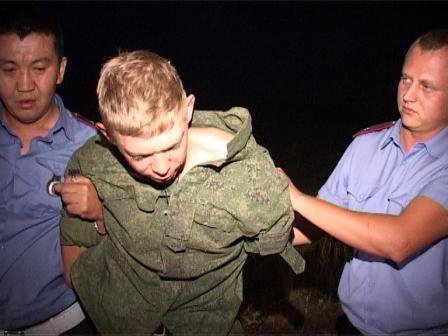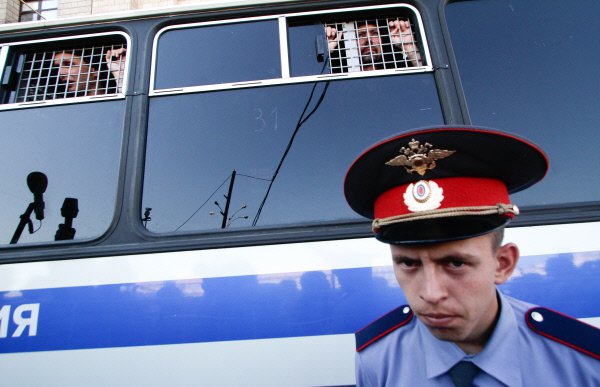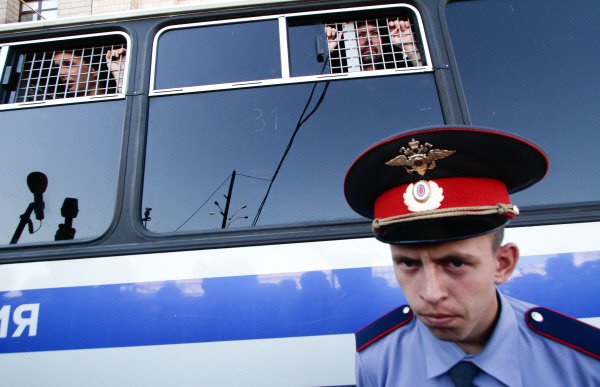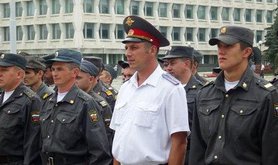In 2009, President Medvedev announced a new law on the Russia’s law enforcement service. The most obvious change resulting from that reform has been the service’s name – changed from the Soviet-era term "Militsiya" (militia) to the more universal "Politsiya" (police). Other measures include a move to cut police numbers and increase salaries, and to improve the rights of detainees. More controversially, control over the police has been centralised, with responsibility for police forces in the regions removed from regional and municipal authorities in favour of direct control from the Ministry of Internal Affairs in Moscow.
Although it is officially a federal state, in reality Russia seems to be heading for ever greater integration in its administrative and political structure, with centralisation across the board. Take for example the evaluation of the performance of public services. Each year, information from the regions is gathered by its appropriate Ministry’s research and analysis centre and then its performance is assessed. Obviously, given such a volume of data, there is an emphasis on purely quantitative indicators, simple processing methods and a fairly crude evaluation system.

Orenburg police arresting a suspected thief. Critics argue that a focus on performance targets leads to too many arrests and examples of the police beating confessions out of suspects. (photo: Orenburg police website)
Number-crunching culture
This system applies to every agency, be it the Interior Ministry, the Investigation Committee, or the Ministry of Education or Health. For example, if fewer patients have died in a given hospital this year than last year, this is seen as a positive indicator of the hospital’s efficiency. If in a school fewer pupils fail their end of year exams, the teachers must be working well. If fewer serious crimes are reported, that’s a bonus point for the police. There is a grain of truth here, but it is not the whole truth, since the number of serious crimes does not depend entirely on the police, hospital deaths do not always result from laziness or lack of skill on the part of doctors and teachers do not bear responsibility for pupils’ unwillingness to learn.
'Police teams have to work to daily targets, to make a specified number of arrests per day, and to work overtime if they have not met the target by the end of their shift.'
The police, however, are uniquely subject to a further level of number-crunching, and one that has caused the most controversy. Teams have to work to daily targets, to make a specified number of arrests per day, and to work overtime if they have not met the target by the end of their shift. The level of debate over this is in part down to constant attention to police work from civil rights campaigners, but, more importantly, it reflects the serious consequences of this ‘bureaucratic formalism’ for both the public and the police themselves. A police officer who knows that his professional progress depends on the number of cases he cracks will try to crack as many as he can - and as quickly as he can. Keenness to catch criminals and do it swiftly is a praiseworthy thing in itself, but it is also important what methods are used to achieve it and what checks and controls are in place. The system of appraisal used for police performance does not include any indication of compliance with civil rights legislation, which is therefore frequently ignored. So in practice the target system leads to police beating confessions out of detainees or using violence to obtain information.
This focus on number crunching means that regional and local police, closely controlled from Moscow and forced to account for their every move, spend their time desperately trying to achieve the required crime detection rates, rather than dealing with the real problems in their area. In other words, crime prevention and public safety are not matters of priority.
Secrecy as usual
In the last two years more and more voices have joined the campaign to abolish the target system, and the reform process has included some tinkering with the regulations, with a radical rethink one of the priorities announced by the expanded police reform working party created in June 2012 by Vladimir Kolokoltsev, the new Minister for the Interior.
The reform working party’s deliberations over the last two years have however been as secret as they have been intensive. Only very curious and persistent experts have been able to discover anything about changes in regulations or the re-jigging of the system. That all this should have been taking place behind closed doors is normal in Russia, but it suggests that either the Interior Ministry is still unaware of the importance of performance evaluation (which seems unlikely), or that it wants to avoid any open or wide-ranging discussion of the problem. Publicly the Interior Ministry has repeatedly affirmed that public opinion will be an official part of the evaluation process. But no details have ever emerged and the practical problems of how this might work have certainly not been discussed.
In fact public opinion is already being canvassed – in 2008, before the reform process began, the Interior Ministry closed down its own social research department and outsourced public opinion surveys to external organisations. However, Ministry rules governing work with independent social research centres are still not accessible to the public, so the only difference is that previously public consultation about the police was only recommended, whereas now it is compulsory. The Interior Ministry commissions surveys at a national level from one or other of the large research organisations, and regional departments use local research centres if they can afford it, or use their own analysts if they can’t.
Opinion polling or manipulation?
The lack of transparency in the tendering process for carrying out the surveys raises doubts about their quality and, indeed, whether they serve any purpose. If one adds the complete secrecy surrounding them - there is no public access to either the survey form or the data collected – then at least two reasonable questions spring to mind. Why then bother with this monitoring, and could it be used to manipulate public opinion?
'The selective publication of the survey results suggests that the Ministry’s aim was to project a positive image of the police, rather than recording public concerns about their work.'
In January 2012 the Interior Ministry published some results of its national survey for the first time. It is clear from these extracts that the data for publication were carefully selected, but given that the survey form was not available, it is impossible to say how the decision was taken what to make public and what was for internal use only. Judging from the fragmentary data that have been released, it is fair to assume that the Interior Ministry itself was responsible for the design of the survey.
This approach is not only at variance with the idea of opinion polls as an essentially transparent tool for creating a dialogue with the public, but it also explicitly contravenes the Interior Ministry’s own directives about openness and the public’s right to information. The selective publication of the survey results suggests that the Ministry’s aim was to project a positive image of the police, rather than recording public concerns about their work.
The way ahead?
One would like to see surveys used on a regular basis as a part of an ongoing dialogue between the police and the public at a local level. But for that to happen, the Interior Ministry would have to take the painful decision to create genuinely autonomous regional police forces.

According to opinion polls, distrust of law enforcement in Russia has reached such proportions that more than 10% of crime victims do not bother going to the police to report it. By implementing police reform, authorities hope at least to improve the force's image (photo: Denis Tyrin/RIA NOVOSTI, all rights reserved).
The present reform process has in fact gone some way towards this, by creating the post of Regional Deputy Interior Minister for the Police, so the regions now have their own heads of police (despite the regime’s general centralisation policy). In addition, the regions have been told to develop their own local systems for evaluating police performance.
Having taken one step forward, however, the Interior Ministry seems stuck. The regional police chief reports not to a more senior police official, but to the regional Internal Affairs Minister, who in turn is accountable to the head of the Interior Ministry, Kolokoltsev. So the attempt to create a new chain of command remains incomplete.
'Until the police force is given [more] autonomy, any attempt to modernise its management and appraisal will end up with this enormous bureaucratic machine back at square one.'
The Interior Ministry has a wide range of responsibilities. Its directorates include not only the various police departments, but research and HR services, investigative agencies and internal troops. It is also in charge of the transport of prisoners, the issue of gun licences and so on. The creation of a separate police department within the Interior Ministry would clarify the police forces’ remit and consequently the criteria to be used for evaluation of their performance. This idea is not new– in 2006, for example, the Federal Migration Service became a separate structure within the Interior Ministry. Until the police force is given similar autonomy, any attempt to modernise its management and appraisal will end up with this enormous bureaucratic machine back at square one – focussed on controlling its regional departments with the help of the crude administrative tools that inevitable in the circumstances. In other words, the target system and its horrific consequences will be here to stay.
Read more
Get our weekly email








Comments
We encourage anyone to comment, please consult the oD commenting guidelines if you have any questions.